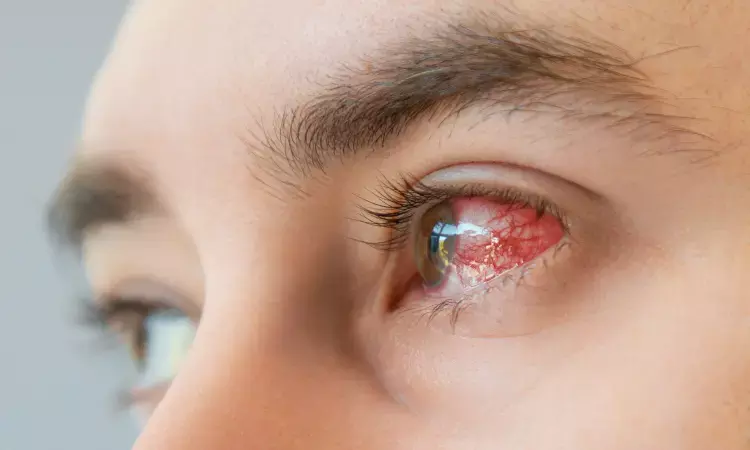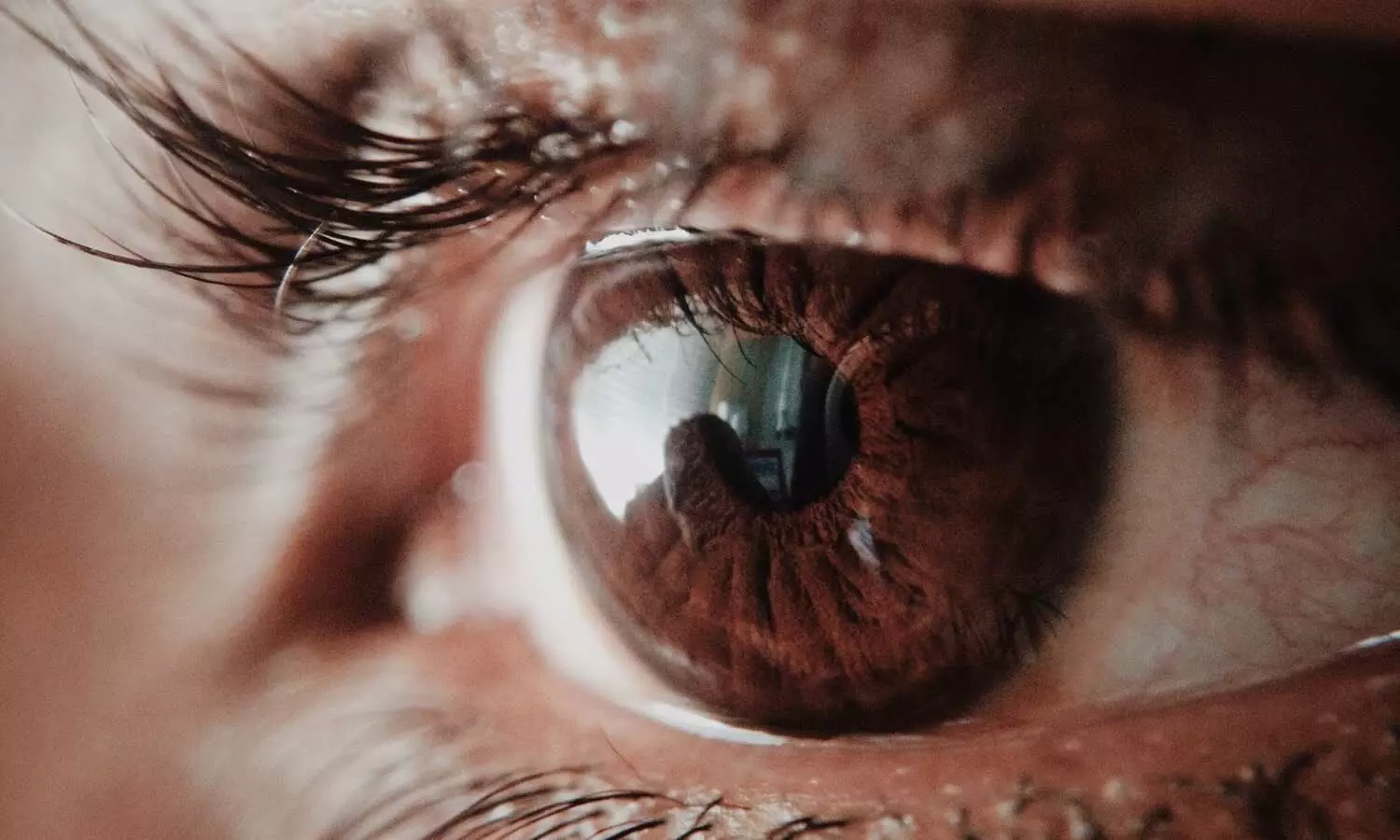- Home
- Medical news & Guidelines
- Anesthesiology
- Cardiology and CTVS
- Critical Care
- Dentistry
- Dermatology
- Diabetes and Endocrinology
- ENT
- Gastroenterology
- Medicine
- Nephrology
- Neurology
- Obstretics-Gynaecology
- Oncology
- Ophthalmology
- Orthopaedics
- Pediatrics-Neonatology
- Psychiatry
- Pulmonology
- Radiology
- Surgery
- Urology
- Laboratory Medicine
- Diet
- Nursing
- Paramedical
- Physiotherapy
- Health news
- Fact Check
- Bone Health Fact Check
- Brain Health Fact Check
- Cancer Related Fact Check
- Child Care Fact Check
- Dental and oral health fact check
- Diabetes and metabolic health fact check
- Diet and Nutrition Fact Check
- Eye and ENT Care Fact Check
- Fitness fact check
- Gut health fact check
- Heart health fact check
- Kidney health fact check
- Medical education fact check
- Men's health fact check
- Respiratory fact check
- Skin and hair care fact check
- Vaccine and Immunization fact check
- Women's health fact check
- AYUSH
- State News
- Andaman and Nicobar Islands
- Andhra Pradesh
- Arunachal Pradesh
- Assam
- Bihar
- Chandigarh
- Chattisgarh
- Dadra and Nagar Haveli
- Daman and Diu
- Delhi
- Goa
- Gujarat
- Haryana
- Himachal Pradesh
- Jammu & Kashmir
- Jharkhand
- Karnataka
- Kerala
- Ladakh
- Lakshadweep
- Madhya Pradesh
- Maharashtra
- Manipur
- Meghalaya
- Mizoram
- Nagaland
- Odisha
- Puducherry
- Punjab
- Rajasthan
- Sikkim
- Tamil Nadu
- Telangana
- Tripura
- Uttar Pradesh
- Uttrakhand
- West Bengal
- Medical Education
- Industry
Polihexanide monotherapy safe and effective in Acanthamoeba Keratitis, finds study

In a groundbreaking phase 3 study, researchers have compared the effectiveness of two treatment regimens for Acanthamoeba keratitis (AK), a rare but potentially severe eye infection. The trial, focused on evaluating the outcomes of patients treated with topical polihexanide (PHMB), with one group receiving a combination therapy and the other a novel monotherapy approach found that polihexanide (PHMB) 0.08% monotherapy was as effective as dual therapy with PHMB 0.02% + propamidine, with medical cure rates of more than 86%.
The trial results were published in the journal Ophthalmology.
Acanthamoeba keratitis (AK) is one of the less common causes of microbial keratitis, but also one of the most severe diseases requiring prolonged treatment time, high rates of surgical intervention, and poor visual outcomes. Recent studies have shown that topical polihexanide (PHMB) treatments have cure rates within 12 months. Hence, researchers conducted a trial to evaluate topical PHMB (polihexanide) 0.02% (0.2 mg/ml)+ propamidine 0.1% (1 mg/ml) with PHMB 0.08% (0.8 mg/ml)+ placebo (PHMB 0.08%) for Acanthamoeba keratitis (AK) treatment.
The research involved 135 participants aged 12 and older, presenting with clinical findings consistent with AK. Inclusion criteria allowed for the enrollment of individuals with concurrent bacterial keratitis, using topical steroids, and antiviral, and antifungal drugs before randomization. Exclusion criteria ruled out patients with concurrent herpes or fungal keratitis and those on antiamebic therapy (AAT). The study design was a prospective, randomized, double-masked, and active-controlled trial with a multicenter approach. Participants were randomized 1:1, utilizing a computer-generated block size of 4. The primary objective was to determine the medical cure rate (MCR) within 12 months without the need for surgery or a change in antiamebic therapy.
Findings:
- The findings have significant implications for the treatment landscape of Acanthamoeba keratitis. The novel monotherapy approach not only showcases promising efficacy but also offers a potential alternative to current treatment protocols. As researchers continue to delve into the intricacies of ocular infections, this study marks a substantial step forward in improving outcomes for individuals affected by Acanthamoeba keratitis.
- Results from the study's full-analysis subset, consisting of 127 participants, revealed intriguing findings.
- The adjusted MCR within 12 months was remarkably similar for both groups—86.6% for the combination therapy of PHMB 0.02% + propamidine and 86.7% for the novel PHMB 0.08% monotherapy.
- The noninferiority requirement for the latter was met, with an adjusted difference of only 0.1 percentage points and a lower one-sided 95% confidence limit of -8.3 percentage points.
- Secondary outcomes, including best-corrected visual acuity and treatment failure rates, were comparable between the two treatment groups.
- The median best-corrected visual acuity was an impressive 20/20, and the overall treatment failure rate was reported at 13.4%. Of those patients experiencing treatment failure, 6.3% required therapeutic keratoplasty.
Importantly, the study demonstrated the safety of both treatment regimens, with no serious drug-related adverse events reported. This suggests that PHMB 0.08% monotherapy could potentially match the efficacy of the widely used dual therapy with PHMB 0.02% + propamidine in populations with similar disease severity.
Further reading: The Orphan Drug for Acanthamoeba Keratitis (ODAK) Trial. PHMB 0.08% (Polihexanide) and Placebo versus PHMB 0.02% and Propamidine 0.1%. https://doi.org/10.1016/j.ophtha.2023.09.031
BDS, MDS
Dr.Niharika Harsha B (BDS,MDS) completed her BDS from Govt Dental College, Hyderabad and MDS from Dr.NTR University of health sciences(Now Kaloji Rao University). She has 4 years of private dental practice and worked for 2 years as Consultant Oral Radiologist at a Dental Imaging Centre in Hyderabad. She worked as Research Assistant and scientific writer in the development of Oral Anti cancer screening device with her seniors. She has a deep intriguing wish in writing highly engaging, captivating and informative medical content for a wider audience. She can be contacted at editorial@medicaldialogues.in.
Dr Kamal Kant Kohli-MBBS, DTCD- a chest specialist with more than 30 years of practice and a flair for writing clinical articles, Dr Kamal Kant Kohli joined Medical Dialogues as a Chief Editor of Medical News. Besides writing articles, as an editor, he proofreads and verifies all the medical content published on Medical Dialogues including those coming from journals, studies,medical conferences,guidelines etc. Email: drkohli@medicaldialogues.in. Contact no. 011-43720751




